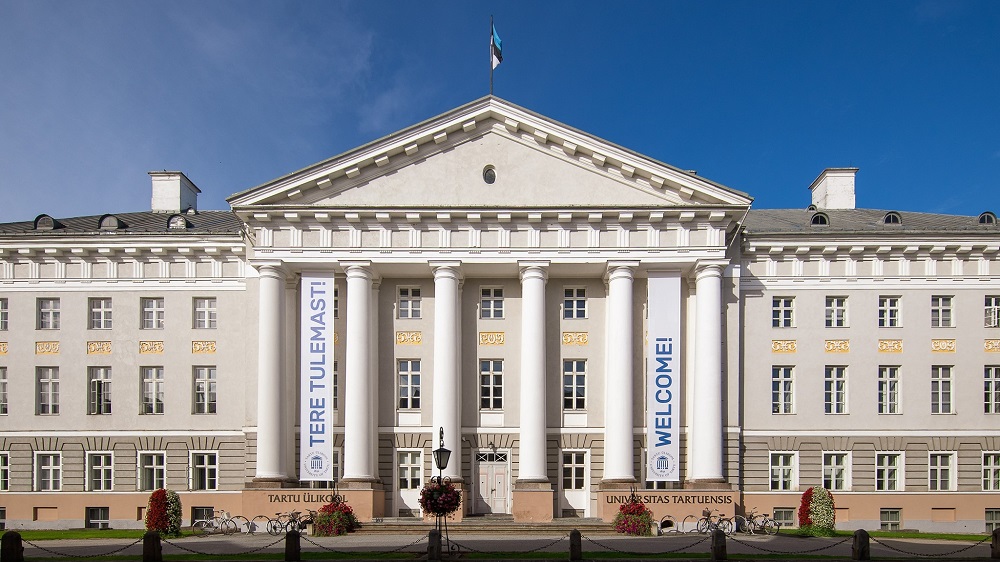
University of Tartu Estonia
The university was originally founded in 1632 by the Swedish king Gustavus Adolphus and was known as the Academia Gustaviana. It closed in 1665 but was later re-established in 1802. It is the largest and most prestigious university in Estonia, with over 13,000 students enrolled as of 2023.
Over its history, the university has survived several periods of closure and reopening, including during the Soviet occupation of Estonia from 1940-1991.
Today, the university is considered the national university of Estonia and is an important symbol of Estonian national identity and culture. Some of the university’s most well-known academic areas include medicine, biology, physics, computer science, and economics. The university has a strong international focus, with over 2,000 international students from more than 100 countries.
It is consistently ranked as one of the top universities in Central and Eastern Europe and has extensive collaborative partnerships with universities worldwide. Notable alumni of the University of Tartu include several former presidents and prime ministers of Estonia, as well as many renowned scientists, writers, and public figures.

Research
The University of Tartu is a leading research institution in Estonia, conducting cutting-edge work in fields like genetics, digital technologies, and environmental sciences.It receives significant research funding from the Estonian government as well as international sources like the European Union.
Faculty and researchers at the university have made important contributions in areas like e-government, stem cell research, and particle physics.
Focus
The University of Tartu is a leading research institution in Estonia, with particular strengths in fields like genetics, information technology, materials science, and environmental studies. Researchers at the university have made important contributions in areas like e-government, stem cell research, cancer biology, and quantum computing.
The university hosts several world-class research centers and institutes, such as the Estonian Genome Center and the Institute of Physics. It receives significant research funding from the Estonian government, the European Union, and other international sources.
Campus and Facilities
The university’s main campus is located in the historic center of Tartu, with several distinctive neoclassical and baroque buildings dating back to the 18th and 19th centuries. In addition to the main campus, the university has satellite campuses in Pärnu and Narva that focus on subjects like business, law, and social sciences.
The university has excellent academic facilities, including modern laboratories, libraries, computer centers, and performance/exhibition spaces, Students have access to a range of athletic and recreational facilities, including sports halls, gyms, and outdoor playing fields.
With over 13,000 students, the University of Tartu has a vibrant and active student community, There are over 130 student organizations and associations covering academic, cultural, political, and recreational interests.The university’s student union, Tartu Üliõpilaskond, represents student interests and organizes various events and activities.
Student housing is available on and around the main campus, with a mix of dormitories, apartments, and private accommodations. The university city of Tartu itself is a hub of youth culture, with a lively cafe, music, and arts scene.
The University of Tartu has dedicated international student support services to assist non-Estonian speakers with things like academic advising, housing, and integration into the campus community.
There are also various extracurricular activities and student organizations catered to the university’s growing international student population.
The university has several bachelor’s degree programs that are fully taught in English, including in fields like computer science, business administration, and environmental technology.
Many of the English-taught undergraduate programs are interdisciplinary in nature, combining subjects like engineering, economics, and information technology.
Admission requirement
The University of Tartu has a comprehensive set of admission requirements for both Estonian and international applicants across its bachelor’s, master’s, and doctoral programs. Here’s an overview of the key admission criteria:
Bachelor’s Programs
For Estonian applicants, admission is primarily based on secondary school leaving exam results and grade point average,
International applicants must have a secondary school diploma or equivalent qualification, and submit standardized test scores like the SAT, ACT, or IB.
All applicants must demonstrate proficiency in the language of instruction (Estonian or English) through language test scores or certificates.
Master’s Programs
Admission to master’s programs requires a bachelor’s degree (or equivalent) in a relevant field , Applicants must submit academic transcripts, letters of recommendation, and a statement of purpose.
Some programs may also have additional requirements such as work experience, language proficiency tests, or entrance exams, English-taught master’s programs typically accept applications from both Estonian and international students.
Doctoral Programs
Admission to doctoral studies at the University of Tartu is highly competitive and selective.Applicants must have a master’s degree (or equivalent) and submit a research proposal, academic writing samples, and letters of recommendation.
Proficiency in both English and Estonian (or another relevant language) is expected for doctoral candidates.Admission decisions are made based on the applicant’s research potential, fit with the university’s research priorities, and available supervision.
More Admissions Considerations
The university may consider additional factors like extracurricular activities, awards, and professional experience, especially for international applicants.
There are also special programs and pathways for Estonian citizens, such as the Undergraduate Study Allowance and the Estonian State Scholarships.
The university provides extensive information and support to guide applicants through the admissions process, including application deadlines, required documents, and language proficiency requirements.


